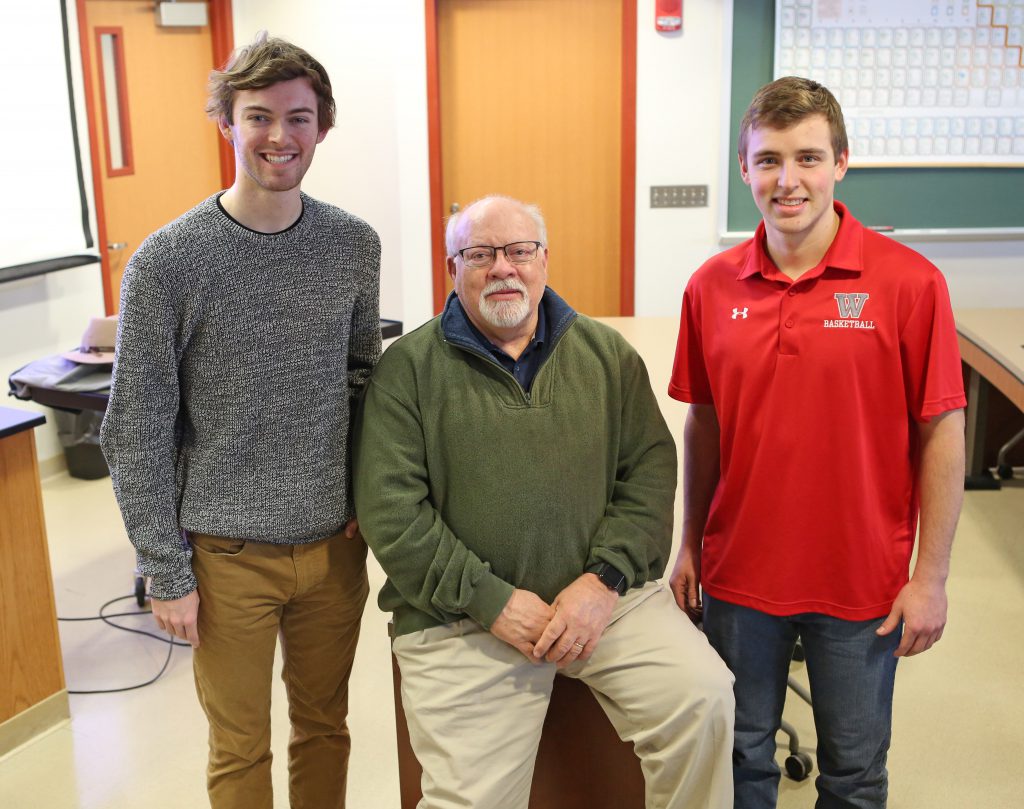Joey Ballard ’20 spent his Spring Break in Ecuador for a Global Health Immersion trip with fellow student Joey Lenkey ’19. The two students shadowed Dr. John Myers ’74, who established an award-winning congenital heart surgery program in Guayaquil, Ecuador and leads a team of healthcare professionals on two-week missions to train Ecuadorian surgeons and perform life-saving procedures on sick children.

What was your favorite part of your immersion experience?
My favorite part of the trip was being able to openly and honestly discuss difficult aspects of medicine with Dr. Myers. Inevitably, things will go wrong in medicine, yet we rarely take the time to explore these scenarios and how to deal with them. Spending extended time with Dr. Myers allowed us to delve into these issues and spurred significant internal reflection on my part.
What surprised you most about the experience?
The hospital we stayed at was a state-of-the-art facility, comparable to any new hospital I’ve seen in the United States. The equipment, technology, and quality of care were impressive. However, I found it difficult to reconcile this advancement with the water quality crisis in Ecuador. Even at the hospital, we were instructed to avoid drinking the tap water. This points to governmental shortcomings, but it was surprising to see such an advanced facility still lack the access to clean water.
What was the biggest lesson you learned?
I learned that the language of medicine is universal. During the trip, there was a language barrier between Dr. Myers and the fellow surgeons he worked with in Ecuador. Despite this seemingly impassable barrier, they were all united by their passion for medicine and their love for patient care. It was heartwarming to see their professional mission overcome communication challenges.
What has been your biggest takeaway?
That other cultures are beautifully complex. I immensely enjoyed feeling the immersion component of this trip – I had to speak in Spanish most times, leading to authentic and meaningful interaction with locals. While I certainly learned so much about Ecuador and its culture, I recognize that I do not and perhaps cannot fully understand it. This experience provided a glimpse into another way a life. I lack much of the context that contributes to it, which cannot be obtained in one week.
Why are immersion learning experiences important?
While Wabash is a wonderful place, our time here is limited. Immersion trips provide firsthand experiences that cannot be replicated in the classroom and serve to influence our perspectives and inform our career paths. Immersion experiences help Wabash men become better through their ability to influence our worldview and challenge us to consider what we see on these trips.